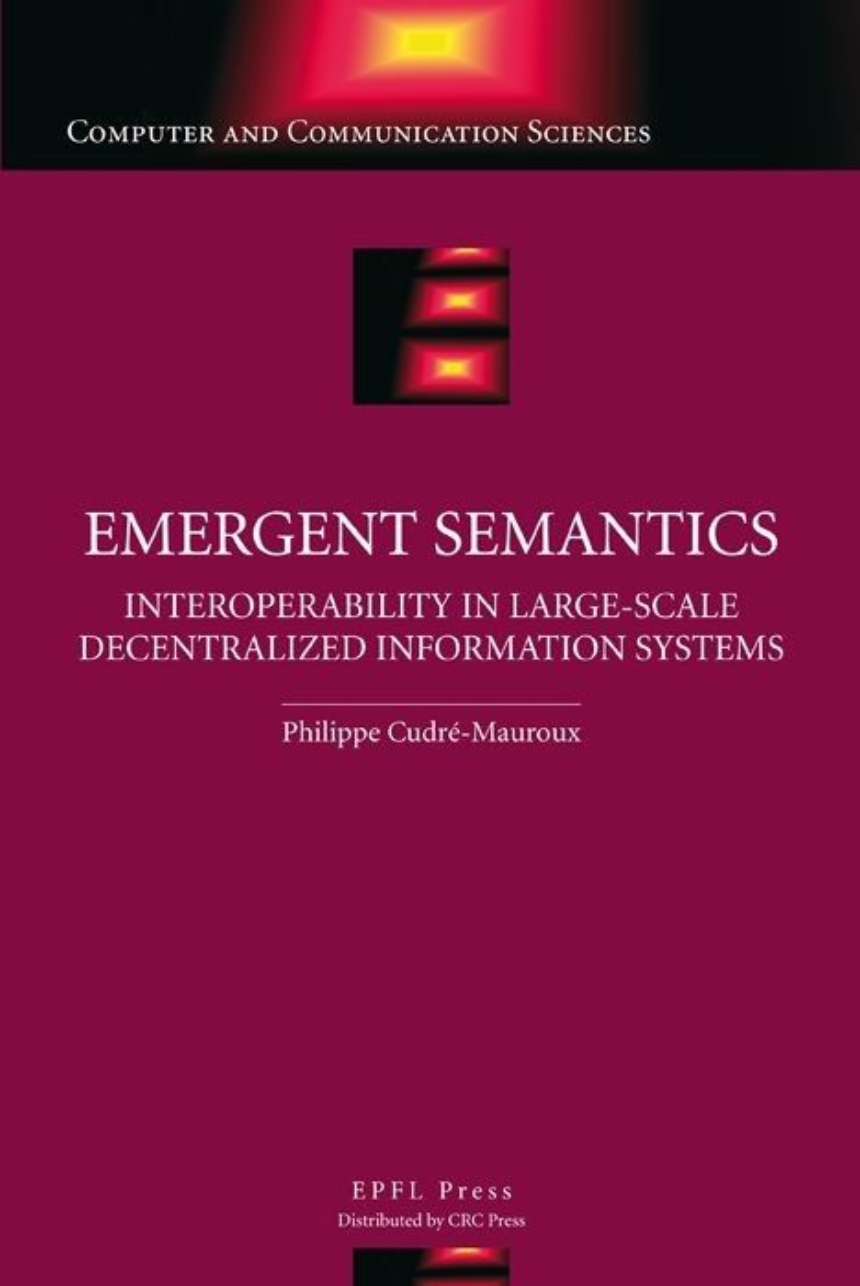9782940222278
Distributed for EPFL Press
Emergent Semantics
Interoperability in Large-Scale Decentralized Information Systems
Peer-to-peer systems are evolving with new information-system architectures, leading to the idea that the principles of decentralization and self-organization will offer new approaches in informatics, especially for systems that scale with the number of users or for which central authorities do not prevail. In this book, the author describes a new way of building global agreements, i.e. semantic interoperabiliy, based only on decentralized, self-organizing interactions. The book first elaborates on the current ecology of the World Wide Web, where autonomous information sources come and go in dynamic and unpredictable ways. Traditional top-down integration techniques are inapplicable to this new context, and the author proposes a new integration architecture based on decentralized mappings and dynamic self-organization. The autor then proposes a set of principles to foster semantic interoperability in very large-scale information systems, with detailed analytical methods that can be used to evaluate the described metrics. The last part of the book is devoted to the presentation of systems that illustrate the applicability of the presented ideas: GridVine, PicShark, and idMesh.
268 pages | 6 1/4 x 9 1/2 | © 2008
Table of Contents
On Integrating Data / Peer-to-Peer Information Management / Semantic Gossiping / Self-Repairing Semantic Networks / Probabilistic Message Passing / Analyzing Semantic Interoperability in the Large / GriVine: Building Internet-Scale / PicShark: Sharing Semi-Structured Annotations in the Large / idMesh: Graph-Based Disambiguation
